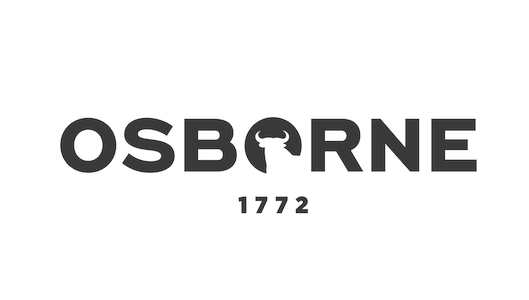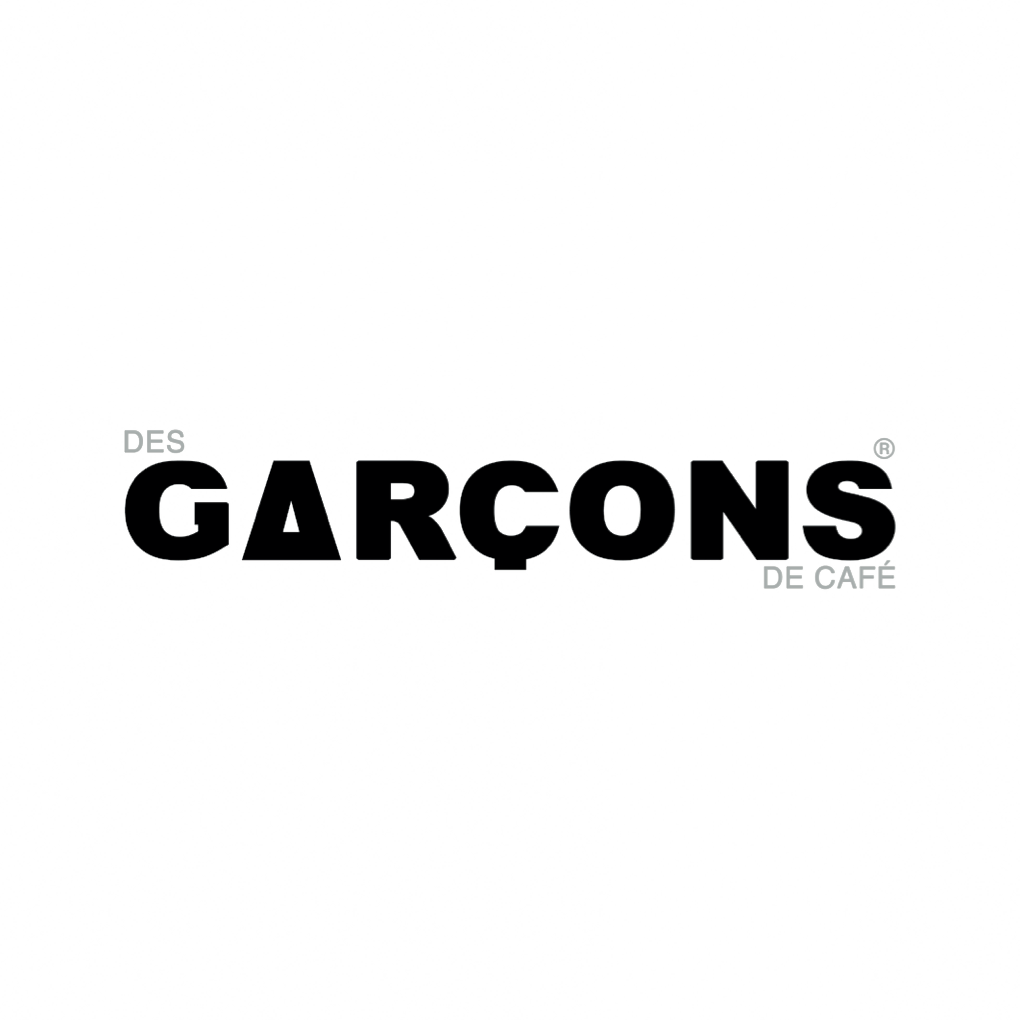News
Pepe Vieira: “Inspiration doesn’t hit you when you’re travelling – it comes to you as you stroll around your restaurant”
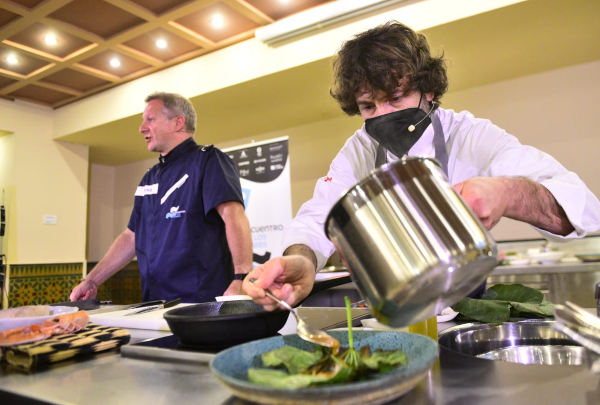
The chef of the Pepe Vieira* restaurant (Pontevedra) arrived at Meeting of the Seas to warn against the loss of authenticity in cooking. “We have to turn our gaze back to our own location, to cook it, transmit it, and be less permeable to influences”.
On Wednesday chef Xosé T. Cannas, better known as Pepe Vieira, came to the 3rd Meeting of the Seas to demonstrate his focus on cooking his surroundings, using the local resources in the format of ingredients, and also in the format of ideas. The chef of Pepe Vieira* (Pontevedra) believes that “the future means preserving what we have, our produce, our nature and our culture. We travel too much. Cooking must hold out if it is to do things to produce authenticity”, he explained during his cookery demonstration.
“Four years ago we realised that we were constantly travelling, and that the trips were exerting too much influence on the way we cooked. We stopped to think about it, and saw that we couldn’t go on like that. We were changing the face of gastronomy in Spain and around the world. We had to regress and go back to our origins”. To do this, the restaurant imposed a number of rules and protocols such as the retrieval of products no longer in vogue, back-pedalling on techniques and recovery of the local non-material heritage. Because inspiration, he summed up, “doesn’t hit you when you’re travelling – it comes to you as you stroll around the restaurant”.
In order to materialise this philosophy, which also uses cooking “as a conveyor of culture”, Vieira cooked his recipes “with a surreal touch, which is also very typical of our neck of the woods”. The first told the story of Alfonso Graña, a man from Pontevedra who set off for America in the late 19th century, but stopped off in the Peruvian jungle, and eventually became king of the Jibaro tribe. “This is a true story, which inspired us to make a “caldeirada” fish stew using a cigala prawn with its head shrunk, like the Jibaros used to do”.
An example of cultural transmission through gastronomy. The next example focused on reutilisation and local work. This was grilled bonito tuna with a beurre blanc of Albariño lees from vines planted in the sand. “The challenge in the years ahead will be what to do with all the organic waste from the restaurant. We’re now looking for companies that can absorb it, as we absorb the waste of our winemaking colleagues”.
The last dish was another story-as-you-cook. One of the restaurant’s classics, the home peixe, “by way of a homage to sailors, to their fears, and the monsters out at sea”. Grilled monkfish daubed with a leek and olive ash powder sauce “to give it the appearance of a monster, and it’s eaten by hand on a monster mural by a local artist”.
Doing things this way, Vieira sticks to his logic of cooking what he finds around him; the kind of logic which, among other awards, recently won him a Michelin green star.
.jpg)
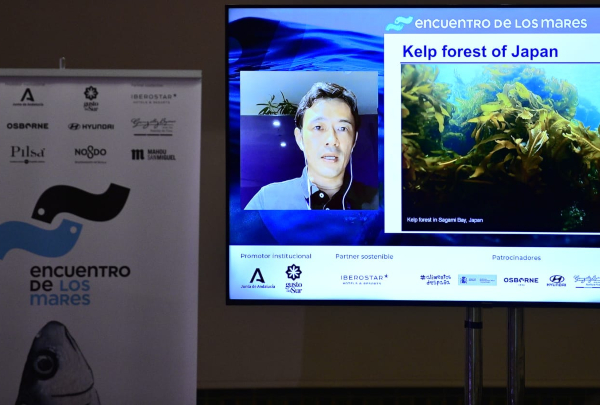
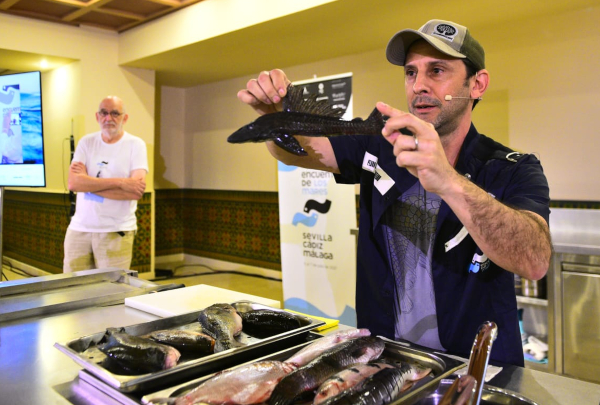
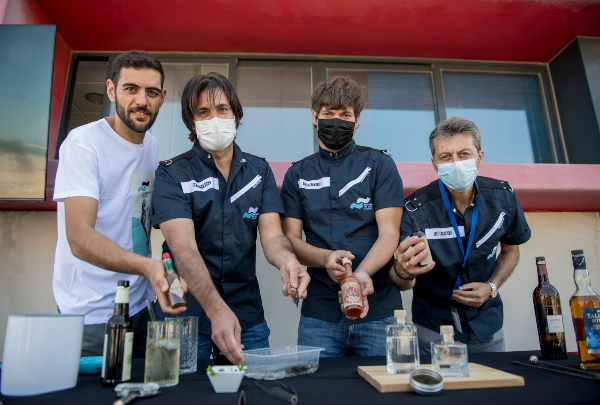
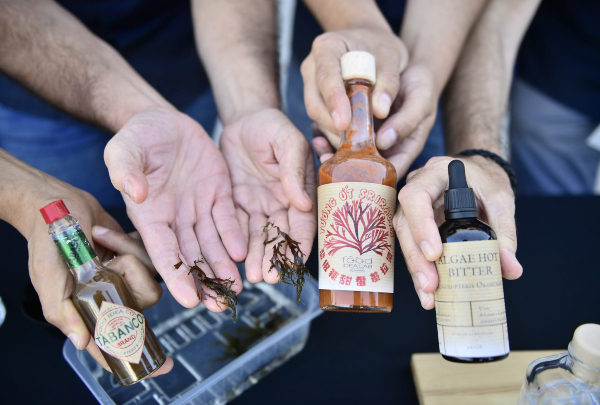
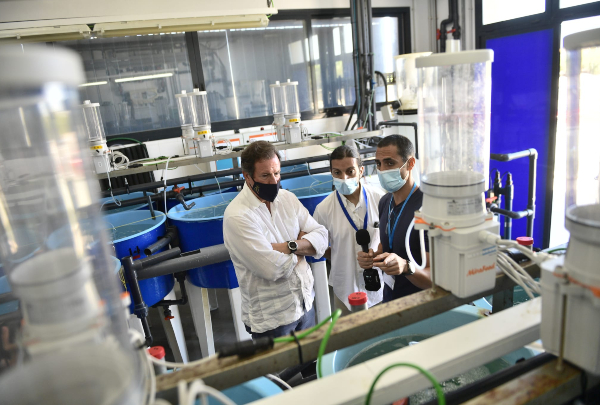
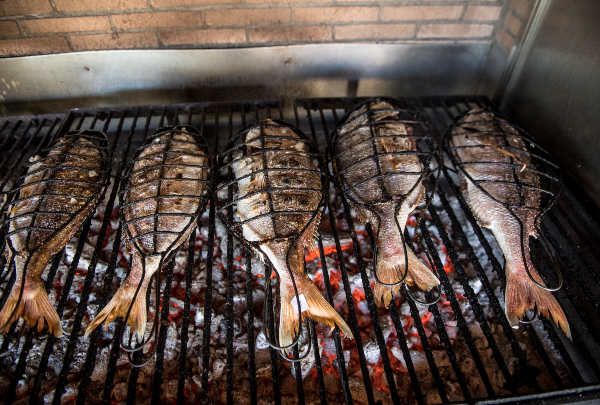
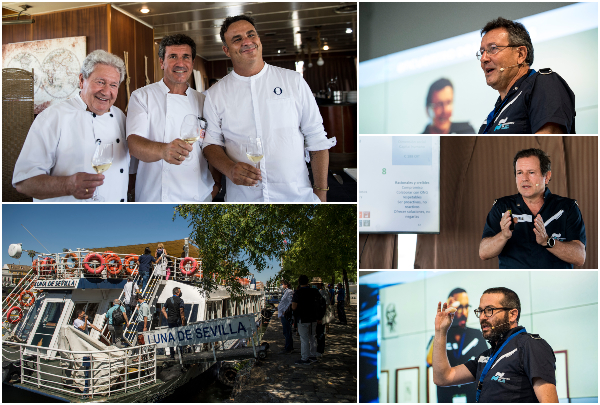
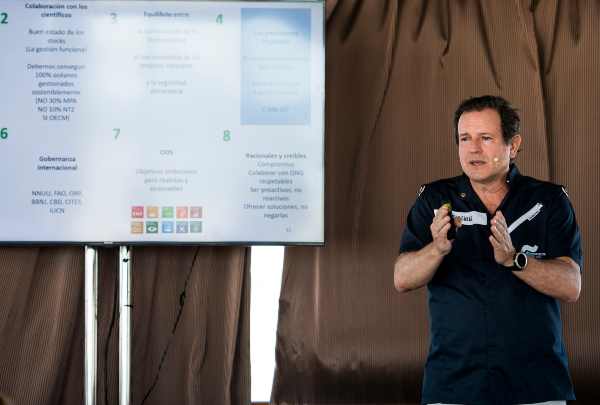
.jpg)





